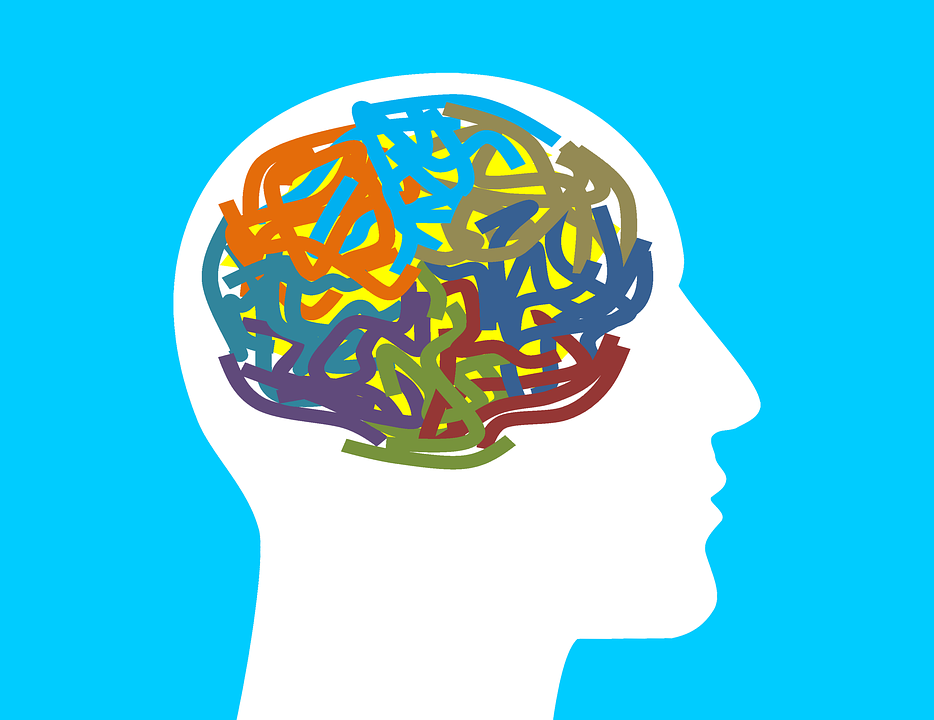The Relevance of Mental Health And Wellness: a Deep Dive Into Counseling, Treatment, and Their Advantages
Psychological wellness greatly forms individual well-being, affecting feelings, habits, and thoughts. Therapy and treatment work as necessary methods for recovery and individual advancement. They supply organized assistance, helping people browse life's difficulties. Yet, many stay uninformed of the specific types of therapy available and their distinct benefits. Recognizing these aspects is vital for any person taking into consideration professional mental wellness assistance. What adheres to may light up courses to strength and satisfaction that lots of neglect.
Understanding Mental Wellness and Its Influence
Although psychological health is frequently ignored, it plays a vital duty in general health and day-to-day functioning. It includes psychological, mental, and social aspects that affect exactly how individuals believe, really feel, and act. A person's mental health and wellness directly affects their ability to deal with anxiety, connect to others, and make selections. Poor mental health and wellness can bring about various issues, consisting of anxiety, depression, and problem in preserving partnerships, every one of which can impede professional and personal growth.Furthermore, psychological health and wellness has far-reaching ramifications for physical health and wellness. Persistent anxiety and neglected psychological problems can contribute to various physical disorders, such as heart condition and compromised immune feedbacks. Alternatively, favorable psychological wellness promotes durability, allowing individuals to deal with life's challenges successfully. Recognizing mental health and wellness's significance is vital for fostering encouraging settings that advertise psychological wellness, thereby improving the lifestyle for people and areas alike
The Different Kinds of Counseling and Treatment
In the domain name of psychological health, various counseling and therapy types satisfy varied demands. Private counseling strategies concentrate on personal problems via one-on-one sessions, while group treatment dynamics foster shared experiences and assistance among individuals. Comprehending these modalities is essential for selecting the proper treatment for different obstacles.
Specific Therapy Techniques
Many private counseling strategies exist, each created to attend to specific mental wellness concerns and satisfy differing client needs. Cognitive Behavior Modification (CBT) concentrates on determining and changing unfavorable thought patterns, while Psychodynamic Therapy explores unconscious processes and previous experiences. Humanistic Treatment highlights individual growth and self-actualization, promoting a helpful atmosphere. Interpersonal Treatment (IPT) targets relationship concerns and communication patterns to boost emotional wellness. In addition, Approval and Dedication Therapy (ACT) encourages clients to accept their ideas and feelings while dedicating to personal values. Each method supplies special techniques and viewpoints, permitting experts to customize their approaches to the individual, therefore enhancing the healing experience and advertising mental wellness healing.
Group Therapy Dynamics
Group therapy dynamics include different restorative methods that take advantage of the power of common experiences and social partnerships. This form of treatment often includes varied groups, promoting a risk-free setting for individuals to express sensations and ideas. Secret sorts of team treatment include support system, which supply psychological support; process-oriented teams, focusing on social communications; and psychoeducational groups, aimed at imparting knowledge regarding psychological health problems. The dynamics within these groups can improve self-awareness, as participants frequently mirror on their behaviors in connection with others. In addition, team treatment promotes a feeling of belonging, decreasing feelings of isolation. With shared stories and cumulative problem-solving, individuals can create dealing techniques and get understandings, inevitably adding to private growth and healing.
The Function of Therapy in Mental Health
Therapy plays a vital duty in mental health by offering different methods customized to specific demands. These methods provide specialist guidance that can cause significant renovations in psychological wellness. Recognizing the different kinds of counseling can help individuals make notified decisions regarding their psychological healthcare.

Kinds Of Counseling Strategies
While numerous counseling approaches exist, each deals special methods and insights right into mental health and wellness therapy - Cognitive Behavioural Therapy. Amongst the most popular are cognitive-behavioral treatment (CBT), which focuses on changing negative thought patterns; psychodynamic treatment, which discovers unconscious processes and childhood years experiences; and humanistic methods, stressing personal development and self-actualization. Additionally, solution-focused brief therapy prioritizes finding solutions in the existing as opposed to delving right into troubles. Group therapy cultivates neighborhood and shared experiences, while family therapy addresses relational dynamics within familial structures. Each technique caters to various needs, lining up with specific choices, concerns, and restorative goals. Understanding these approaches aids customers make informed selections about their mental health and wellness journey and advertises reliable therapy tailored to their distinct circumstances
Benefits of Expert Advice
Many individuals profit from professional assistance in managing their psychological wellness difficulties. Counseling provides a risk-free room for clients to discover their ideas and sensations without judgment. This restorative atmosphere cultivates self-awareness, allowing people to determine patterns in their behavior and create healthier coping techniques. Professional advice likewise offers accessibility to evidence-based techniques that can alleviate signs and symptoms of anxiousness, depression, and other mental health concerns. Additionally, counselors can help in establishing practical goals and use assistance in attaining them, improving general health. The joint connection in between counselor and customer is crucial, as it promotes responsibility and encourages personal growth. Inevitably, professional support plays an essential duty in guiding psychological health and wellness trips, leading to enhanced emotional durability and life contentment.
Benefits of Treatment: Healing and Development

Exactly how to Choose the Right Specialist or Therapist
Exactly how can one navigate the commonly frustrating procedure of picking the appropriate specialist or therapist? Determining individual demands is vital; people need to consider their details concerns, whether connection, anxiety, or anxiety obstacles. Mental Health Resources It is valuable to research study numerous healing Source approaches, such as cognitive-behavioral treatment or psychodynamic treatment, to discover an appropriate match.Next, possible clients ought to look for recommendations from relied on resources or use on-line directories. It is critical to review specialists' credentials, including their education and learning, licensing, and areas of field of expertise. Scheduling preliminary examinations can aid evaluate compatibility, allowing individuals to evaluate interaction styles and individual comfort.Finally, logistical aspects, such as place, availability, and costs, should additionally be taken into consideration. By attentively weighing these aspects, one can make an educated decision, inevitably promoting a restorative partnership that sustains psychological health and personal growth.
Getting Over Stigma: Welcoming Mental Wellness Assistance
While social perspectives towards mental wellness have developed, preconception still provides a considerable barrier for several seeking assistance. This stigma usually shows up as mistaken beliefs bordering mental disease, leading individuals to really feel pity or worry concerning their struggles. Lots of people are reluctant to pursue counseling or treatment due to fears concerning being judged or classified. Conquering this stigma is essential for promoting a supportive atmosphere where people can openly review their mental health and wellness needs.Communities and organizations play an essential role in this change by advertising recognition and education and learning concerning psychological health and wellness issues. Campaigns that highlight individual tales can humanize these experiences, urging others to seek assistance without concern. As acceptance grows, individuals might really feel much more equipped to welcome psychological health assistance, recognizing it as a crucial element of total wellness. By taking down stigma, culture can cultivate a culture of understanding, compassion, and proactive mental health and wellness treatment.
Strategies for Keeping Psychological Wellness Outside of Treatment
Therapy gives beneficial assistance, preserving psychological well-being outside of sessions is just as important. Individuals can carry out a number of approaches to sustain their mental health. Routine exercise plays an important function, as exercise advertises the launch of endorphins, which improve mood. In addition, a well balanced diet regimen rich in you can find out more nutrients can substantially impact emotional stability and power levels.Practicing mindfulness and meditation aids people handle stress and create higher self-awareness. Developing a constant sleep regimen is likewise fundamental, as quality remainder is crucial for cognitive feature and emotional regulation.Engaging in social activities promotes connection and decreases feelings of seclusion. Pursuing interests or leisure activities can give a creative outlet and boost self-worth. Establishing sensible objectives and exercising self-compassion permits individuals to grow strength. By integrating these techniques right into life, people can efficiently sustain their psychological well-being past therapy sessions.
Regularly Asked Concerns

Exactly How Can I Inform if I Required Therapy?

Determining the need for therapy typically includes recognizing relentless sensations of unhappiness, stress and anxiety, or frustrating stress and anxiety. If everyday functioning comes to be challenging or coping systems fall short, seeking specialist support might be a beneficial advance.
What Should I Anticipate in My First Therapy Session?
In the very first therapy session, individuals can anticipate an introduction, conversation of their reasons for looking for aid, and an introduction of the specialist's method, producing a structure for future discussions and developing comfort in the healing space.
Are Online Treatment Sessions as Effective as In-Person Ones?
Study suggests that online therapy sessions can be as effective as in-person ones. Elements such as the specialist's credentials, customer involvement, and the restorative partnership substantially influence end results, despite the tool utilized.
Can Therapy Aid With Partnership Problems?
Therapy can help people in attending to partnership problems by supplying tools for interaction, recognizing feelings, and solving conflicts. Cognitive Behavioural Therapy. It advertises much healthier characteristics and urges individual development, eventually fostering more powerful, more meeting links in between partners
Just How Lengthy Does Therapy Typically Last?
Treatment period differs considerably based upon specific demands and goals. Typically, sessions may last from a couple of weeks to a number of months, with some individuals taking part in recurring therapy to address lasting concerns and personal development. Cognitive Behavioral Treatment (CBT) focuses on determining and changing negative thought patterns, while Psychodynamic Treatment discovers past experiences and unconscious procedures. Trick types of group treatment include assistance groups, which offer psychological assistance; process-oriented groups, concentrating on interpersonal interactions; and psychoeducational groups, aimed at presenting knowledge about mental wellness concerns. Among the most popular are cognitive-behavioral treatment (CBT), which focuses on altering adverse thought patterns; psychodynamic treatment, which discovers subconscious processes and childhood years experiences; and humanistic methods, stressing individual growth and self-actualization. Group treatment fosters community and shared experiences, while family members therapy addresses relational characteristics within familial structures. It is advantageous to study various restorative techniques, such as cognitive-behavioral therapy or psychodynamic treatment, to locate an appropriate match.Next, prospective clients should look for recommendations from trusted sources or use on the internet directory sites.